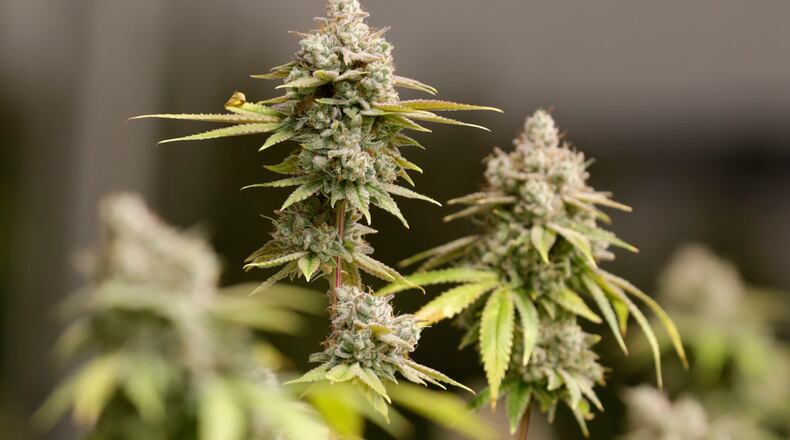Here’s everything you need to know about the current law, passed by voters and going into effect Thursday:
1. Possession is legal; Purchasing is not
Once the bill goes into effect Thursday, it will immediately allow Ohioans over the age of 21 to possess up to 2.5 ounces of marijuana in plant form or up to 15 grams in extract form and grow up to six marijuana plants per adult (capped at 12 plants per household).
But there won’t be any way to legally buy it. The regulatory framework allowing recreational marijuana dispensaries isn’t expected to be in place until mid-2024.
And while the law allows people to grow their own (at least for now), it doesn’t allow them to sell it.
2. Where can you use it?
Smoking marijuana is banned in indoor public places or places of employment by the state’s indoor smoking ban, a law approved by Ohioans at the ballot box in 2006 — the most recent initiated statute to go into law before Tuesday’s recreational marijuana victory.
There are provisions in Issue 2 banning Ohioans from using marijuana in outdoor public spaces or in vehicles.
However, Issue 2 also explicitly notes that it does not require nor prohibit “any public place from accommodating an individual’s use of adult use cannabis,” — a set of provisions that attorney Rob Scott, clerk for Kettering Municipal Court and former city council member, said will give local governments the ability to set their own public-consumption rules.
3. Are there limits on who can use it?
Here are four categories of adults who may be limited from using recreational marijuana:
1. Anyone under 21. The legislation is designed to treat marijuana like alcohol, so adults under the age of 21 won’t be able to legally possess marijuana.
2. Some renters. The bill authorizes landlords to include a prohibition on the use of cannabis in lease agreements.
3. Some employees. It also allows employers to establish and enforce drug-free workplaces, prohibiting employees from using marijuana and disciplining employees for doing so.
4. Gun owners. Federal law prohibits people who use marijuana from receiving, possessing or purchasing a firearm.
Every purchase from a licensed gun dealer requires someone to fill out a background check asking if the buyer is “an unlawful user of, or addicted to, marijuana or any depressant, stimulant, narcotic drug, or any other controlled substances.”
The form notes that use or possession of marijuana is still illegal under federal law even if it’s legalized by the state. It also notes that lying on the form is a felony under federal law.
About the Author

